|
|
|||||
This week in Aftershocks: As Africa’s biggest film festival concludes and the Oscars prepare for prime time, we’re highlighting some top recent African films and their connection to the challenges people face in their daily lives. Here are our nominations across a range of categories... |
|||||
|
|
|||||
And the award goes to...Best film to watch if you’re a terrorist thug: Africa’s biggest film festival, the Pan-African Film & TV Festival of Ouagadougou, took place in Burkina Faso last week, undeterred by escalating violence in the country’s north. That resilience is mirrored by the titular character of Apolline Traoré’s “Sira,” a movie that provides a rare female perspective on what it means to navigate and persist beyond the horrors of conflict. Set in Burkina Faso, the displacement and violence the protagonist suffers underlines how women are disproportionately impacted by the country’s ongoing insurgency. At the end of 2022, women and children under 15 years old accounted for nearly 80% of the country’s registered internally displaced people. Best film for ex-colonial powers to watch: The documentary “Money, Freedom, a History of the CFA Franc” provides a window into the historical dynamics underpinning contemporary relations between France and its former African colonies. Senegalese director Katy Ndiaye highlights how France has used the CFA franc to maintain significant economic and political influence over the affairs of its former colonies. With the monetary policy of CFA countries still dependent on European decisions, it is little wonder that DRC President Felix Tshisekedi felt the need to warn French President Emmanuel Macron against taking a paternalistic approach to African countries during their joint press conference in Kinshasa. It looks like Macron’s African counterparts are keen to hold France accountable for its new commitment to “profound humility.” Best film to reference if you're launching a presidential campaign: German-directed “Borga” tells the story of a Ghanaian man who pursues greener pastures in Germany, only to be disappointed by the harsh realities of migrant life. Kojo, the film’s protagonist, bears testament to former Ghanaian President John Mahama’s recent remarks that the country’s economic woes have created a situation in which young Ghanaians would leave the country for “even the most menial jobs in other countries.” Mahama apparently wants to take on the job of changing that: he made his remarks during his campaign launch for nomination as the opposition party’s presidential candidate for the 2024 general election. Best documentary for xenophobic leaders to watch: Our special recommendation for Tunisian President Kais Saied is the documentary “No U-Turn.” In the film, director Ike Nnaebue retraces the journey of his failed attempt to illegally emigrate to Europe through North Africa. Along the way, Nnaebue documents his fellow travellers’ motivations for migration. Spoiler alert for President Saied (and others who have made similar false claims): none were motivated to risk their lives out of a desire to change the racial dynamics of the countries to which they were travelling. President Saied’s racist comments against sub-Saharan African migrants have stoked attacks against Black Africans in Tunisia, prompting the governments of Côte d’Ivoire and Guinea to evacuate their citizens. It has also drawn backlash within and outside the country. The African Union cancelled a conference in the country and the World Bank is pausing its work there. Money, unlike people, can migrate legally. Best film for your homophobic uncle to watch: “All the Colours of the World Are Between Black and White” is a moving exposition of the psychological and social impacts of homophobia on the continent. The film highlights the very real threat to human rights amongst Africa’s LGBTQIA+ communities, which was on full display in Kenya and Zambia this week. In the wake of a Supreme Court ruling upholding the LGBTQIA+ community’s freedom of association, a Kenyan MP described homosexuality as worse than murder, and the country’s first lady declared a need for national prayers. In Zambia, Women March organisers from NGO Sistah Sistah were detained for allowing shows of support for the LGBTQIA+ community during the march. Best film to watch if you’re a corrupt official: Boubacar Sangaré’s documentary “A Golden Life” puts a spotlight on child labour in Burkina Faso’s artisanal mining industry (Sangaré himself once worked in the mines). His documentary forces the audience to confront the ways Africa’s natural resource wealth has failed to translate into better lives and livelihoods for its people. Zimbabweans were similarly confronted by news of an unreleased Al Jazeera documentary allegedly exposing corruption and gold smuggling by the country’s political elites. The first part of the exposé was supposed to air last week but has since been delayed, likely due to government efforts to shut it down. Because that’s how governments with nothing to hide tend to operate. ¯\_(ツ)_/¯ From the ONE Team
The numbers
 |
|||||
|
|
|||||
Quote of the week
|
|||||
|
|
|||||
What you should read, watch & listen to
|
|||||
|
|
|||||
A look ahead13-17 March: The 58th session of the Intergovernmental Panel on Climate Change (IPCC) in Bern, Switzerland. 14-15 March: The UN Development Cooperation Forum in New York, US. 15-21 March: The Economic Commission for Africa’s Conference of Ministers in Addis Ababa, Ethiopia. |
|||||
|
|
|||||
The ONE Campaign’s data.one.org provides cutting edge data and analysis on the economic, political, and social changes impacting Africa. Check it out HERE. |
|||||
|
|
|||||
|
|
|||||
Did you like today's email?Loved it Mehhh Hated it |
|||||
|
|
|||||
Did you like today's email?Loved it Mehhh Hated it |
|||||
|
|
|||||
Wie hat dir dieser Newsletter gefallen?Richtig gut! Ging so… Überhaupt nicht. |
|||||
|
|
|||||
|
|||||
|
|||||
|
|||||
|
This email was sent by ONE.ORG to test@example.com. You can unsubscribe at any time. ONE Campaign |
